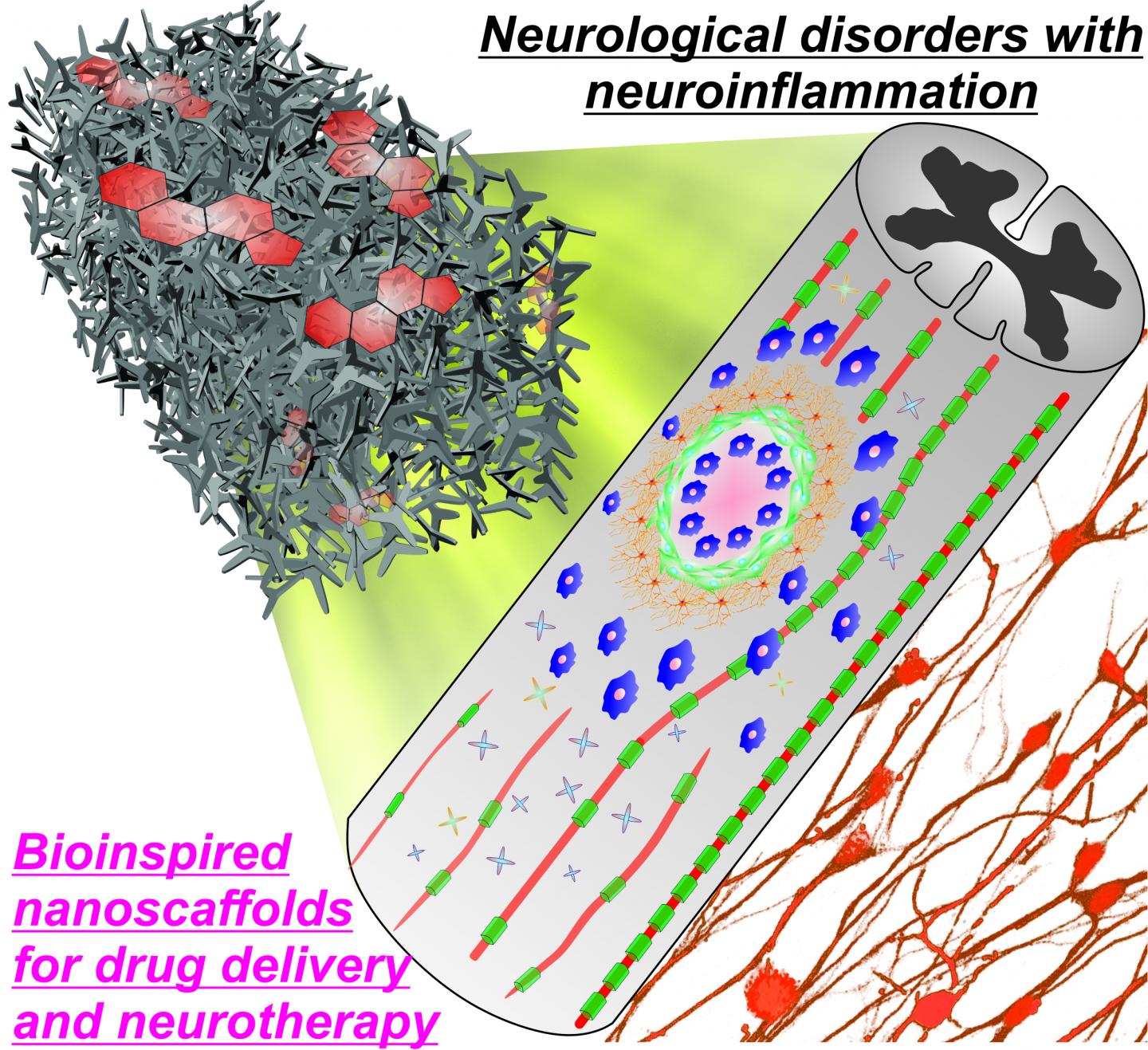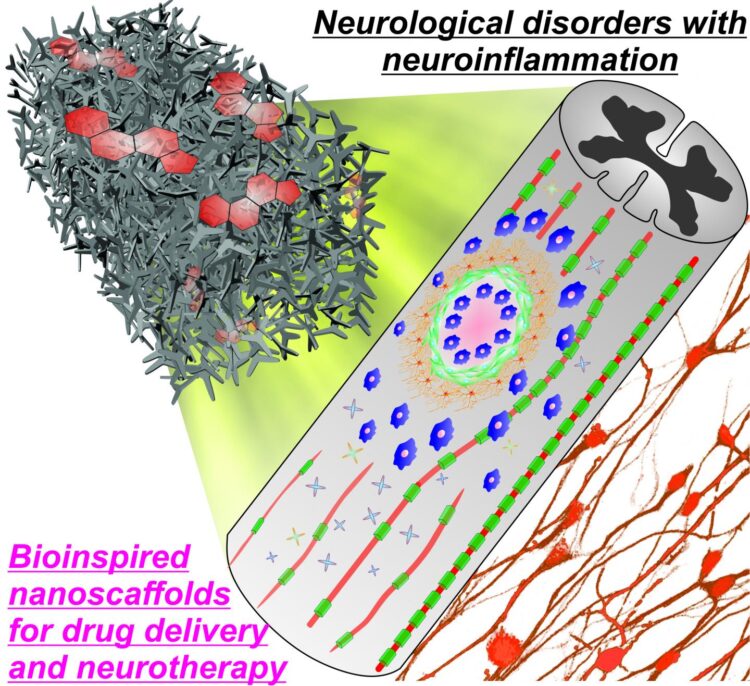Drug delivery technology is aimed at helping people with spinal cord and other nervous system disorders

Credit: KiBum Lee, Letao Yang and Brian M. Conley
A Rutgers-led team has created a smart drug delivery system that reduces inflammation in damaged nervous tissues and may help treat spinal cord injuries and other neurological disorders.
The system, which uses extremely thin biomaterials implanted in the body, also protects nerve fibers (axons) that connect nerve cells in injured neural tissues, according to a study in the journal Advanced Materials.
Inflammation typically is a major factor during recovery from central nervous system diseases and injuries. Some regenerative medicine approaches have shown great potential for treating spinal cord injuries, traumatic brain injuries, Alzheimer’s disease, Parkinson’s disease, stroke and other neurological disorders. But suppressing the immune system during treatment can lead to side effects and boost the risk of infection.
“A major goal is to suppress neuroinflammation and restore a healthy micro-environment at sites of neurological disorders,” said senior author KiBum Lee, a professor in the Department of Chemistry and Chemical Biology in the School of Arts and Sciences at Rutgers University-New Brunswick. “Our system took four years to develop and has shown enormous potential for smart drug delivery for better treatment of neurological disorders.”
The team’s unique drug delivery system consists of ultrathin nanomaterials, sugar polymers and neural proteins. The system, which releases an anti-inflammatory molecule (methylprednisolone), can create a favorable micro-environment to promote tissue repair and recovery after neurological injury.
By developing innovative, multifunctional and reliable drug delivery systems that use nano-biomaterials, Lee’s research group aims to improve the treatment of neurological disorders. The team believes the new system may pave the way for treating not only central nervous system injuries, but also other diseases, since inflammation generally is associated with a variety of problems such as cardiovascular disease, osteoarthritis, diabetes and cancer.
###
The study’s co-lead authors are Letao Yang and Brian M. Conley, researchers in Lee’s group, and scientists at the University of Miami.
Media Contact
Todd Bates
[email protected]
Original Source
https:/
Related Journal Article
http://dx.





